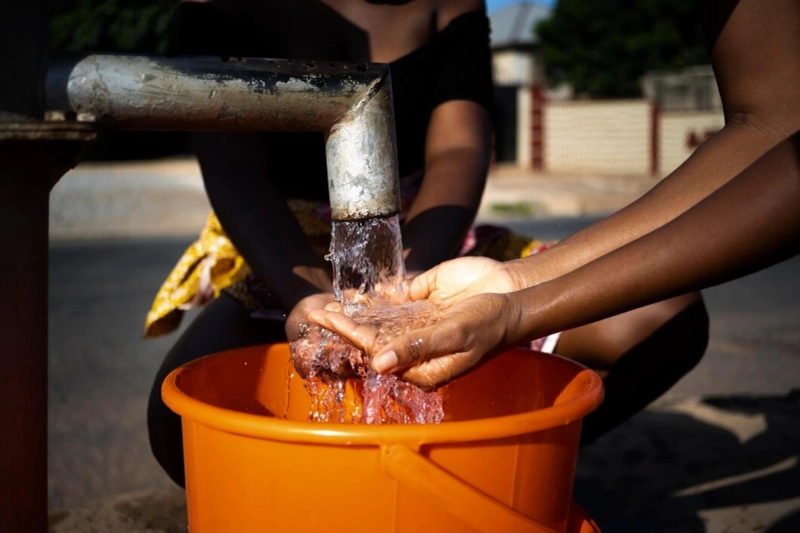In an increasingly interconnected world, the importance of access to clean water transcends geographical boundaries. Yet, a significant portion of the global population grapples daily with the consequences of impure water. As public and governmental interventions fluctuate in their efficacy, NGOs and charities have emerged as the unsung heroes in the narrative of water security. Their undying commitment to establishing sustainable water purification projects has illuminated countless lives, turning despair into hope. Often operating in challenging terrains, navigating through bureaucratic hurdles, and innovating to suit specific regional needs, these organizations have become the backbone of global drinking water initiatives. Here, delves deep into the remarkable journey of NGOs and charities, exploring their pivotal role in spearheading water purification projects, the challenges they encounter, and the profound impact they have had on communities worldwide.
NGO Partner with Local Communities for Water Initiatives
NGOs have long recognized the power of community involvement in driving the success of drinking water projects. Partnering with local communities is not just a strategic move but a holistic approach that ensures sustainability and ownership. By collaborating directly with those who understand the region's unique challenges and needs, NGOs can tailor their solutions to be both impactful and lasting. This synergy fosters a sense of shared responsibility, where locals are not just passive beneficiaries, but active participants in project planning, execution, and maintenance. Engaging community members also facilitates knowledge transfer, leading to self-reliance in managing and maintaining water resources. Ultimately, when NGOs and communities join hands in drinking water projects, it transcends beyond mere infrastructure development; it becomes a movement where every drop of water symbolizes unity, progress, and hope.
NGOs Ensure the Sustainability of Water Purification Projects
Non-Governmental Organizations (NGOs) play a pivotal role in the initiation and maintenance of water purification projects worldwide. Their involvement doesn't merely stop at providing immediate solutions; they ensure that these initiatives have lasting impacts. By collaborating closely with local communities, NGOs foster a sense of ownership and responsibility among the beneficiaries. They conduct consistent training sessions, teaching locals the intricacies of operating and maintaining the purification systems. This empowerment strategy ensures that even in the NGO's absence, the community remains equipped to handle and sustain the project. Furthermore, by sourcing materials and technologies locally, NGOs enhance the project's resilience and adaptability, ensuring it remains functional despite environmental or economic changes. Thus, in the vast landscape of water purification endeavors, NGOs stand out not just as initiators but as stewards, ensuring the sustainability and longevity of each project.
Exploring the NGOs Financial Strategies for Water Projects
Navigating the intricate realm of funding, many NGOs have developed robust financial strategies tailored for water purification projects. The financial blueprint of these endeavors often blends multiple revenue streams, leveraging both grassroots fundraising campaigns and substantial grants from international agencies or philanthropic foundations. Many NGOs also adopt a partnership model, collaborating with corporate entities under their CSR (Corporate Social Responsibility) initiatives. Such collaborations not only provide substantial monetary support but also often come with technical expertise and infrastructure assistance. Furthermore, crowd-funding platforms have emerged as a significant tool, enabling NGOs to connect directly with individual donors globally. By showcasing real-time progress and transparently accounting for every penny spent, NGOs strengthen donor trust, ensuring sustained contributions. This multifaceted financial approach ensures that water purification projects remain resilient, scalable, and sustainable in their mission to provide clean drinking water to communities in need.
Spreading the Word about the Importance of Clean Water
Raising awareness about pressing global issues is vital, and the significance of clean water stands paramount among them. The narrative surrounding clean water isn't just about quenching thirst; it's a tale of health, socio-economic growth, and overall community development. Drinking water projects spearheaded by various organizations are making commendable strides, yet their success often hinges on widespread support and understanding. By amplifying the message about the dire consequences of water scarcity and contamination, we can garner collective efforts towards ensuring every individual's right to safe water. Campaigns, educational programs, and community outreach can act as catalysts, not only urging immediate action but also fostering a long-term commitment. Spreading the word about the importance of clean water, therefore, isn't a mere act of advocacy; it's a crucial step towards global progress and sustainability.
The NGOs Future Vision for Water Purification Projects
The evolving landscape of global water challenges necessitates forward-thinking solutions, and this is where the future vision of NGOs for water purification projects shines. Recognizing that temporary fixes are not sustainable, NGOs are shifting their focus towards lasting impact and community empowerment in their water purification projects. The envisaged future entails not just the provision of clean water but also equipping communities with the knowledge and tools to maintain and replicate these systems independently. By prioritizing local involvement, sustainable technologies, and education, NGOs aim to create a ripple effect, where one successful water purification project sparks another, leading to a widespread, grassroots-driven movement for clean water access. This vision underscores the essence of self-sufficiency, ensuring that the wave of change initiated by NGOs continues to flow, long after their direct involvement concludes.
Conclusion
The role of NGOs and charities in spearheading water purification and drinking water projects cannot be understated. Their relentless efforts, innovative solutions, and community-driven approach have illuminated the path for global water security. As we stand on the brink of pressing global challenges, including climate change and its impact on water resources, the role of these organizations becomes even more paramount. Supporting them is not just an act of charity, but an investment in a healthier, more equitable future for all.



